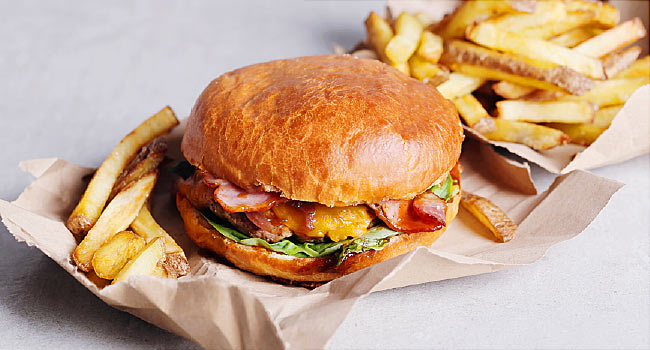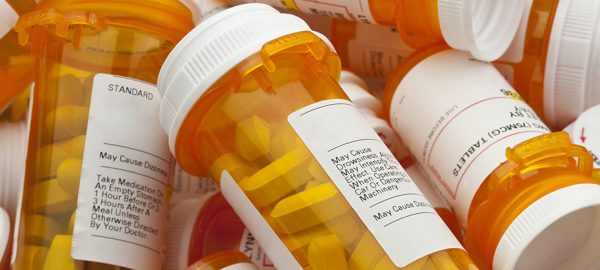Various toxic chemicals found in fast food containers
Take-out bags, boxes, wrappers and cups linked to cancer
Sophomore Adama Kaloko cannot go one week without having her favorite McDonald’s burger. She was surprised to hear that the box it comes in contains chemicals that are dangerous to the environment and her health, but does not think she will succeed in staying away from them for that long.
Fast food alone has a bad rep due to the harmful chemicals and ingredients that are put in them, but what is not as well known is that many chemicals are also stored in the containers the food is placed in.
Recent studies from the Environmental Science and Technology Letters found that fluorinated chemicals known for repelling grease stains on things like furniture and clothing are in one-third of the fast food packaging researchers tested.
The issue with their grease-resistance properties is that it does not allow for the substances to easily break down over time. Instead, they remain and build up in the environment and in our bodies.
These chemicals, or PFASs (per- and polyfluoroalkyl substances), have been linked to several health issues such as high cholesterol, reproductive problems, immune system damage, and cancer.
Health issues typically arise when people are constantly exposed to the toxins in small amounts over long periods of time, making the effects dangerously unnoticeable.
Most concerning is the fact that some of the containers were found to have PFOA or C8, a chemical that used to be a major part of nonstick coating materials.
For safety reasons, the FDA officially banned PFOA in food packaging used in the U.S., but it is still being made in other countries, like China.
The study authors say they are not sure exactly how PFOA ended up in some of the food packaging they tested, but it is not a good sign.
Some of the restaurants in which fluorinated chemicals were detected in food wrappers and containers include Burger King, McDonald’s, Chick-fil-a, Chipotle, Starbucks, KFC and Wendy’s.
“Fast food chains should start looking into switching out their harmful containers so they won’t have any court cases against them,” Kaloko said.
Others hope for this change, but do not think that the fast food chains will actually act towards this issue.
“[Restaurants] would just view it as a waste of time and money,” senior Josephine Ohene-Okae said.
Food companies are expected to inform the Food and Drug Administration when they plan to include a new chemical into their food packaging before they implement it, but the FDA does not do anything to check whether or not the new chemical is safe.
Instead, the FDA expects the food companies to conduct their own safety testing to determine the chemical’s risks.
Having food boxes, bags, wrappers, and cups infested with chemicals is the equivalence of eating the chemicals since they get rubbed onto the food they are holding.
Out of the 400 samples of fast food containers that the study tested, bread and dessert wrappers were discovered to be the most likely to hold chemicals. Suddenly that cookie from Subway does not sound so good.
Burger wrappers came in second place of most chemical-filled and paperboard containers came in third as one out of five boxes that hold french fries, for example, tested positive. Despite these facts, some food packaging experts do not find the results of the study that surprising or cause for alarm.
Because we are constantly exposed to such chemicals through food packaging and other sources, we always have some in our bodies and are therefore basically immune to their dangers.
Still, hearing that not only the food we may be eating has harmful contents, but the bags they come in do too is not so appealing.
To be on the safe side, the authors of this study recommend people reduce their exposure to the chemicals by avoiding food that’s been in contact with greaseproof packaging, such as microwave popcorn, pizza and take-out boxes, and fast food wrappers.
“Researchers also say that you should stay away from fast food, but I haven’t done that,” Ohene-Okae said.
This whole study only further proves that more fresh and homemade food is the better option for our health. Remember that the next time you go through a drive-thru to pick up a hamburger, you may be getting your meal with a side of chemicals.

Senior Judy Nanaw is the Health Editor for the A-Blast and this is her second year on staff. Before this year, her position was a staff writer. She is...











